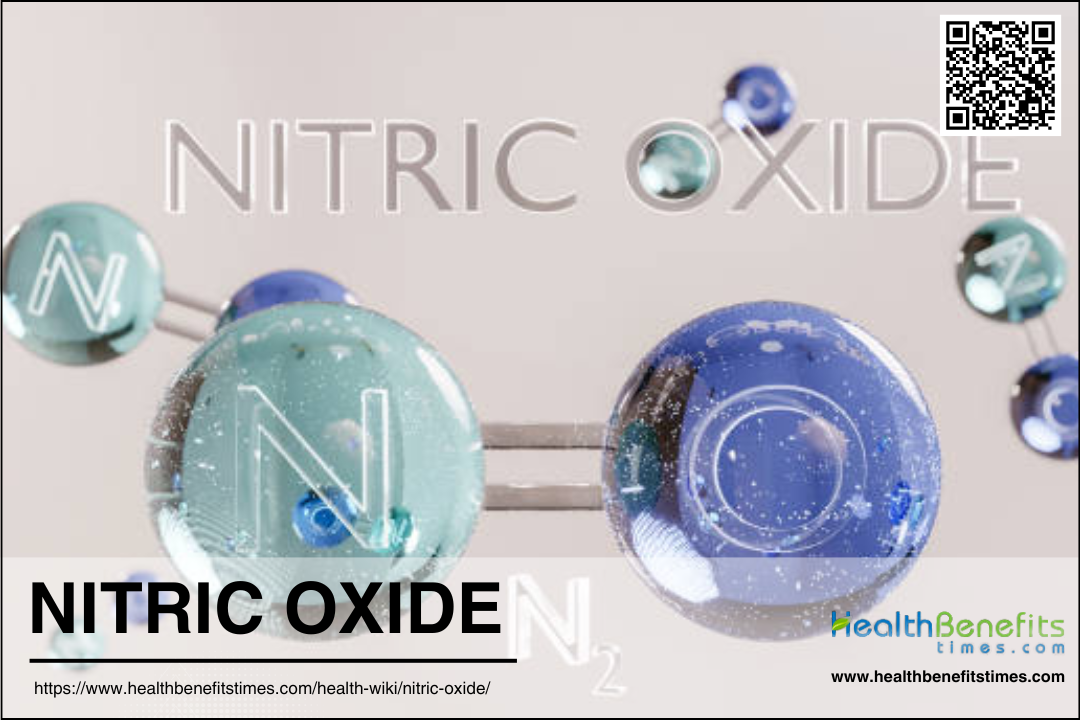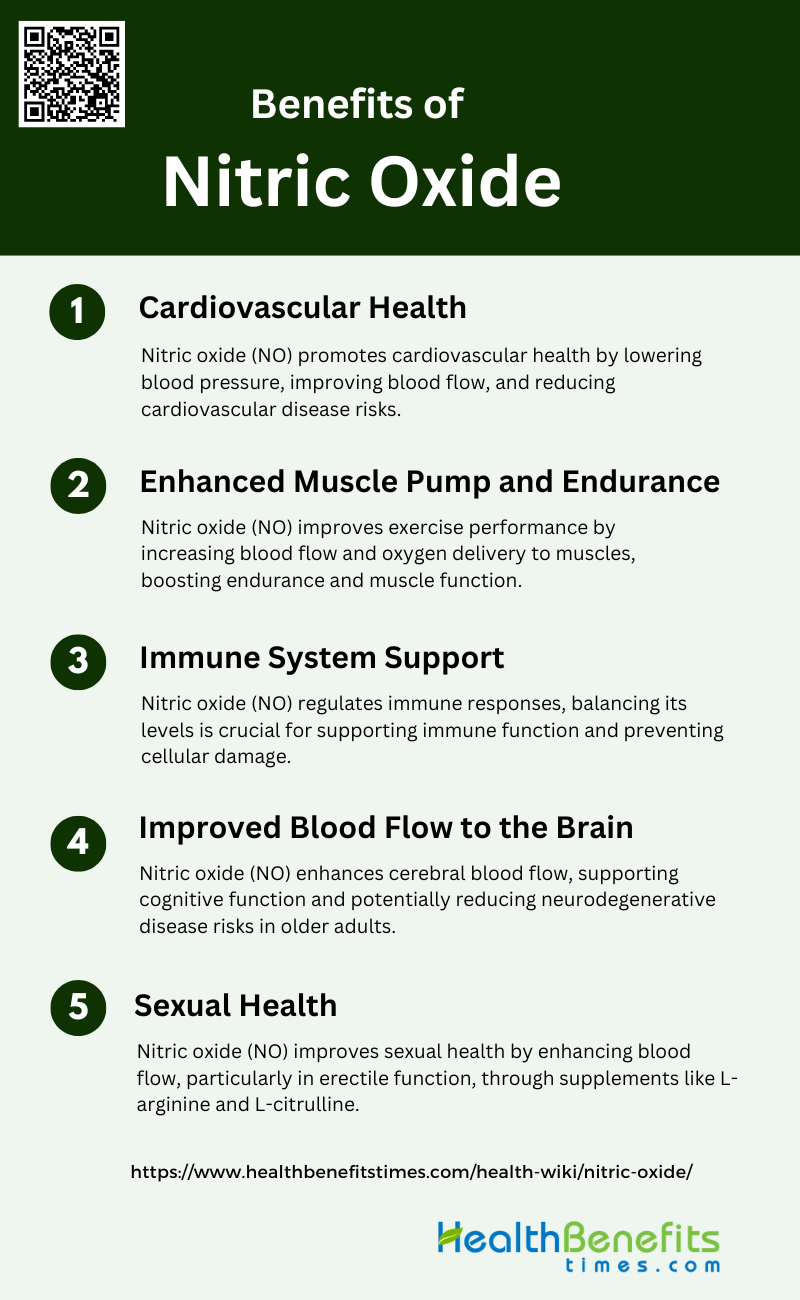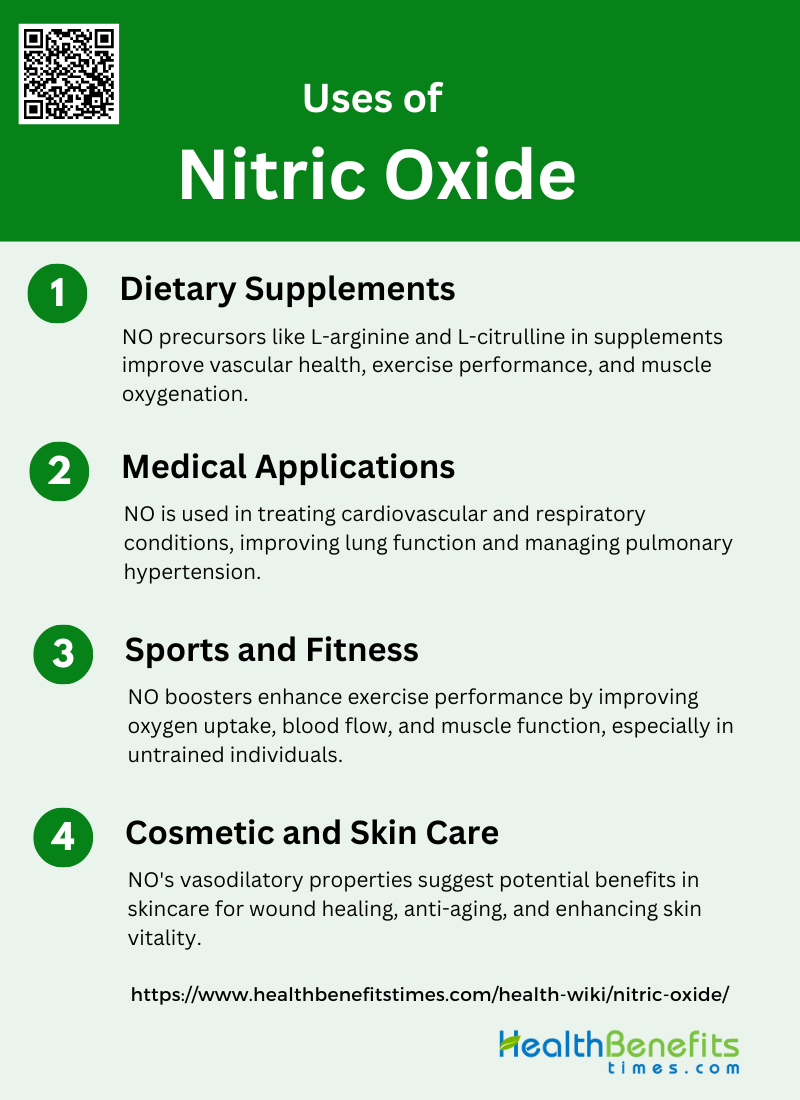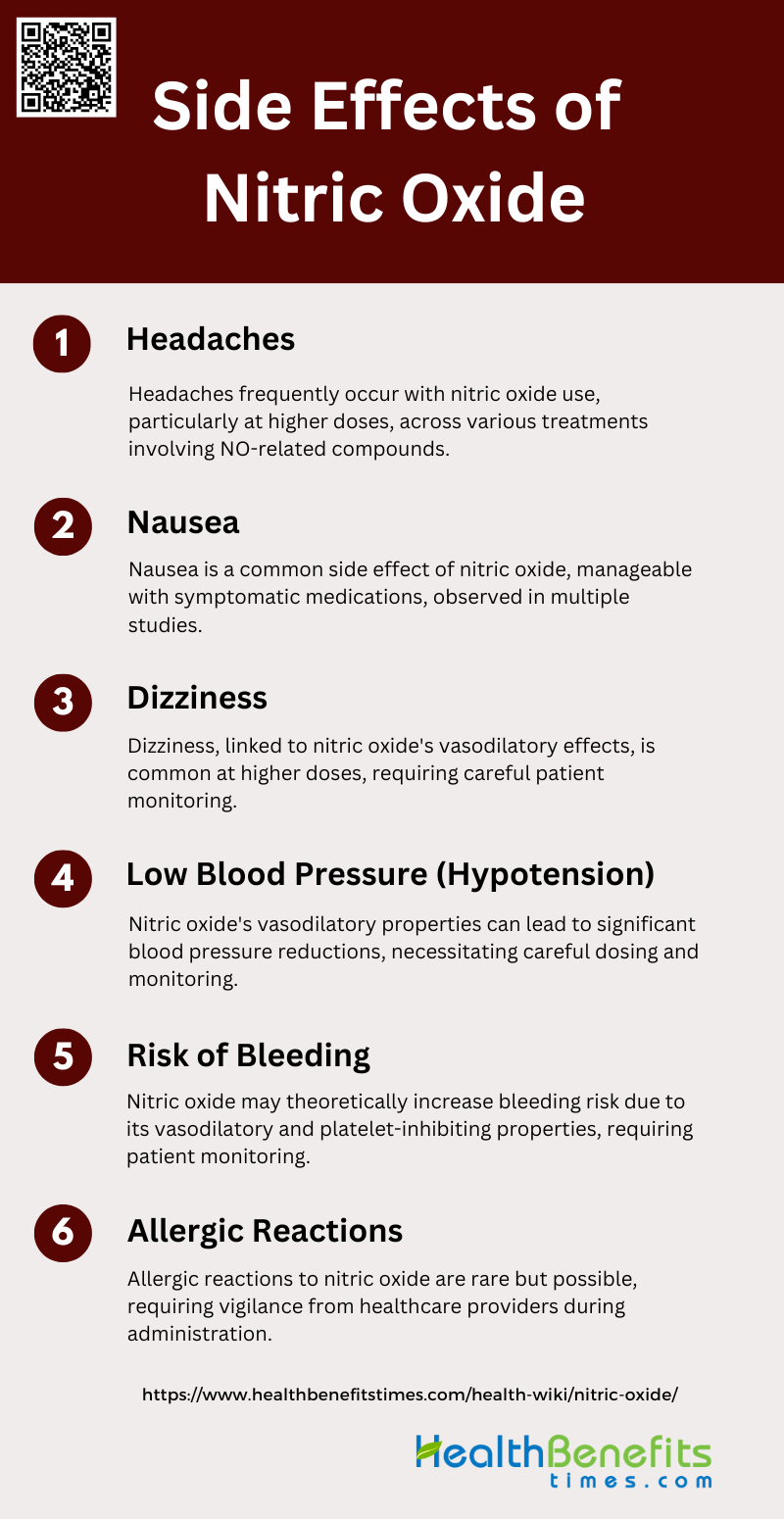Nitric oxide (NO) is a small, gaseous signaling molecule that plays a crucial role in various physiological processes in the human body. It is synthesized from the amino acid L-arginine by the enzyme nitric oxide synthase and is involved in the regulation of vascular tone, neurotransmission, and immune response. Nitric oxide facilitates vasodilation, which helps improve blood flow and lower blood pressure, making it essential for cardiovascular health. Additionally, it acts as a neurotransmitter and is involved in the communication between nerve cells. Its role in the immune system includes modulating the activity of immune cells and helping to defend against pathogens. Due to its wide-ranging effects, nitric oxide is a molecule of significant interest in medical research, particularly in areas related to cardiovascular diseases and immune function.
How nitric oxide is produced in the body
Role of L-arginine and L-citrulline
L-arginine is a crucial substrate for the production of nitric oxide (NO) in the body. The enzyme nitric oxide synthase (NOS) catalyzes the oxidation of L-arginine to produce NO and L-citrulline. This reaction is essential for various physiological processes, including neurotransmission, blood pressure regulation, and immune responses. L-citrulline, a by-product of this reaction, can be recycled back into L-arginine through the citrulline-NO cycle, involving the enzymes argininosuccinate synthetase (AS) and argininosuccinate lyase (AL). This recycling process ensures a continuous supply of L-arginine for sustained NO production, highlighting the interdependent roles of L-arginine and L-citrulline in maintaining NO levels in the body.
Enzymatic Production by Nitric Oxide Synthase (NOS)
Nitric oxide synthase (NOS) is the enzyme responsible for the production of nitric oxide (NO) from L-arginine. NOS enzymes are hemeproteins that catalyze the oxidation of L-arginine to NO and L-citrulline, utilizing molecular oxygen and NADPH as co-substrates. There are three main isoforms of NOS: neuronal (nNOS), inducible (iNOS), and endothelial (eNOS), each regulated by distinct genes and differing in their dependence on calcium and their expression patterns. The enzyme’s activity is finely regulated by cofactors such as tetrahydrobiopterin (BH4) and interactions with calcium/calmodulin. NOS enzymes also contain redox-active prosthetic groups like FAD, FMN, and heme, which facilitate electron transfer during the catalytic process. This complex enzymatic mechanism underscores the critical role of NOS in NO production and its regulation in various physiological and pathophysiological contexts.
Benefits of Nitric Oxide
By promoting vasodilation, it helps improve blood flow, reduce blood pressure, and boost exercise endurance. Here are some key benefits of nitric oxide:
1. Cardiovascular Health
Nitric oxide (NO) plays a crucial role in cardiovascular health by regulating vascular tone, reducing blood pressure, and improving endothelial function. Dietary nitrate supplementation, such as beetroot juice, has been shown to lower blood pressure in hypertensive patients and improve vascular endothelial function, reducing arterial stiffness in older adults. Additionally, NO enhances blood flow and reduces platelet aggregation, which can prevent cardiovascular diseases. The combination of flavonoid-rich apples and nitrate-rich spinach has also been found to augment NO status, enhance endothelial function, and lower blood pressure, further supporting cardiovascular health.
2. Enhanced Muscle Pump and Endurance
NO is essential for enhancing muscle pump and endurance by improving blood flow and oxygen delivery to active muscles. Supplementation with nitrate-rich beetroot juice has been shown to increase exercise performance and endurance, particularly in older adults and individuals with type 2 diabetes. NO stimulates mitochondrial biogenesis in skeletal muscle, enhancing muscle oxidative capacity and efficiency during exercise. Studies have indicated that NO donors can improve tolerance to both aerobic and anaerobic exercise, especially in untrained or moderately trained individuals. This enhancement in muscle function and endurance is attributed to the increased availability of NO, which facilitates better nutrient and oxygen delivery to muscles.
3. Immune System Support
It is involved in various immune functions, including the modulation of immune cell activity and the regulation of inflammatory responses. NO’s ability to interact with reactive oxygen species can have both beneficial and detrimental effects on immune function, depending on its concentration. Low concentrations of NO are thought to have important signaling effects that support immune function, while high concentrations can cause cellular damage. Therefore, maintaining optimal NO levels is crucial for supporting a healthy immune system.
4. Improved Blood Flow to the Brain
Dietary nitrate supplementation has been shown to improve cerebrovascular health by enhancing blood flow to the brain, which is particularly beneficial for older adults who may experience age-related declines in NO levels. Improved blood flow to the brain can support cognitive performance and reduce the risk of neurodegenerative diseases. Although the effects on cognitive performance are mixed, some studies have reported positive outcomes, indicating that NO can play a role in maintaining brain health and function.
5. Sexual Health
It facilitates the dilation of blood vessels, which is essential for achieving and maintaining an erection. NO supplementation has been shown to reduce erectile dysfunction and improve sexual health by enhancing blood flow to the genital area. L-arginine and L-citrulline, precursors to NO, are commonly used in supplements to boost NO levels and support sexual health. These supplements have been found to improve erectile function and overall sexual performance, highlighting the importance of NO in sexual health.
Uses of Nitric Oxide
Nitric oxide (NO) is a versatile molecule with a wide range of applications in medicine and industry. Its unique properties allow it to function as a signaling molecule in various physiological processes, making it invaluable in therapeutic settings. Below are some notable uses of nitric oxide:
1. Dietary Supplements
Nitric oxide (NO) precursors, such as L-arginine and L-citrulline, are commonly found in dietary supplements aimed at boosting NO levels in the body. These supplements are popular for their potential to improve vascular health and exercise performance. L-citrulline is particularly effective as it is readily absorbed and converted to L-arginine, enhancing NO production more efficiently than L-arginine alone. Popular products on the market include pre-workout supplements and formulations specifically designed to enhance NO levels for better blood flow and muscle oxygenation.
2. Medical Applications
L-citrulline supplementation has been shown to improve asthma control and lung function in obese asthmatics by increasing NO levels. Additionally, L-arginine and L-citrulline have been used to manage pulmonary hypertension, with studies indicating improvements in hemodynamics and exercise capacity in patients. These findings suggest that NO precursors can be beneficial in managing conditions where NO deficiency is a contributing factor.
3. Sports and Fitness
In the realm of sports and fitness, nitric oxide boosters are widely used to enhance exercise performance. Supplements containing L-citrulline and L-arginine have been shown to improve oxygen uptake kinetics and exercise tolerance, particularly in untrained or moderately trained individuals. Foods rich in NO precursors, such as beets, spinach, and watermelon, are also popular for their natural ability to boost NO levels, thereby improving blood flow and muscle performance during workouts.
4. Cosmetic and Skin Care
Topical applications of nitric oxide are gaining attention in the cosmetic and skincare industry for their potential benefits in skin health. NO can improve blood flow and nutrient delivery to the skin, which may aid in wound healing and provide anti-aging effects. While specific studies on topical NO applications are limited, the known vasodilatory and regenerative properties of NO suggest promising uses in skincare formulations aimed at enhancing skin vitality and repair.
Side Effects of Nitric Oxide
Nitric oxide supplements are popular for their potential to enhance athletic performance and improve cardiovascular health. However, like any supplement, they come with potential side effects that users should be aware of. Understanding these side effects is crucial to making informed decisions about their use.
1. Headaches
Headaches are a common side effect associated with nitric oxide (NO) administration. In a study involving the soluble guanylate cyclase stimulator IW-1973, headaches were reported by a significant number of participants, particularly at higher doses of 30 mg or more. Similarly, another study on IW-1701, another sGC stimulator, found that headaches were one of the most frequently reported adverse events, occurring in 7 out of 40 subjects. Additionally, the use of glyceryl trinitrate (GTN), a nitric oxide donor, in acute stroke patients also resulted in headaches in 15% of the treated group. These findings suggest that headaches are a consistent side effect across different NO-related treatments.
2. Nausea
Nausea is another side effect observed with nitric oxide administration. In the study of IW-1701, nausea was reported in 3 out of 40 subjects who received the treatment. Similarly, a case report involving a 15-year-old girl treated with nitric oxide for idiopathic pulmonary arterial hypertension (IPAH) noted the development of nausea during the treatment phase. These instances indicate that nausea is a relatively common adverse event associated with nitric oxide therapies, although it tends to be manageable with symptomatic medications.
3. Dizziness
Dizziness, including postural dizziness, is a notable side effect of nitric oxide administration. In the study of IW-1973, dizziness was reported in 6 out of 32 subjects, particularly at doses of 30 mg or higher. This side effect is likely related to the vasodilatory effects of nitric oxide, which can lead to changes in blood pressure and subsequent dizziness. The occurrence of dizziness underscores the need for careful monitoring of patients receiving nitric oxide therapies, especially at higher doses.
4. Low Blood Pressure (Hypotension)
Nitric oxide is well-known for its vasodilatory properties, which can lead to hypotension. In the study of IW-1973, orthostatic hypotension and decreased blood pressure were reported in 4 subjects. Similarly, the administration of GTN in acute stroke patients resulted in a dose-dependent reduction in blood pressure. Another study involving IW-1701 also reported hypotension as a common adverse event. These findings highlight the potential for nitric oxide to cause significant reductions in blood pressure, necessitating careful dose management and monitoring.
5. Risk of Bleeding
While the provided studies do not directly report bleeding as a side effect, the vasodilatory and platelet-inhibiting properties of nitric oxide could theoretically increase the risk of bleeding. Nitric oxide inhibits platelet activation, which is a crucial step in the blood clotting process. Therefore, patients receiving nitric oxide therapies, especially those with underlying conditions that predispose them to bleeding, should be closely monitored for any signs of hemorrhage.
6. Allergic Reactions
Allergic reactions to nitric oxide are not commonly reported in the provided studies. However, any pharmacological agent has the potential to cause allergic reactions in susceptible individuals. The absence of reported allergic reactions in the studies of IW-1973, IW-1701, and GTN suggests that such events are rare. Nonetheless, healthcare providers should remain vigilant for any signs of hypersensitivity or allergic reactions in patients receiving nitric oxide therapies.
Precautions of Nitric Oxide
Who Should Avoid Nitric Oxide Supplements
Nitric oxide supplements, often used to enhance exercise performance and cardiovascular health, are not suitable for everyone. Individuals with certain health conditions should avoid these supplements. People with severe heart or liver problems, recent history of stroke or heart attack, and those with low blood pressure should be cautious. Additionally, individuals with rare inherited eye diseases should avoid nitric oxide supplements due to potential adverse effects. Pregnant women and individuals with kidney disorders should also consult a healthcare professional before using these supplements, as they may exacerbate existing health issues.
Interaction with Medications
They may interfere with blood pressure medications, such as nitrates, causing dangerously low blood pressure levels. This is particularly concerning for individuals with cardiovascular conditions. Additionally, nitric oxide can interact with erectile dysfunction medications like Viagra and Cialis, enhancing their effects and increasing the risk of side effects. It is crucial for individuals taking anticoagulants or blood thinners to consult a healthcare provider before using nitric oxide supplements, as they may affect blood clotting processes. Always seek medical advice to ensure safe supplement use.
Long-Term Use Concerns of Nitric Oxide
Potential Risks of Prolonged Supplementation
Prolonged supplementation of nitric oxide (NO) or its precursors, such as nitrate and nitrite, has been associated with several potential risks. Inhaled nitric oxide (iNO) therapy, particularly in patients with acute respiratory distress syndrome (ARDS), has been shown to significantly increase the risk of acute kidney injury (AKI). Additionally, excessive recreational use of nitrous oxide (N2O), a related compound, has been linked to neurological damage, including irreversible neuropathy and paralysis due to vitamin B12 deficiency. Long-term dietary nitrate supplementation in animal models has raised concerns about potential adverse effects related to cancer and hormonal imbalances, although some studies have not found significant detrimental effects. Therefore, the risks associated with prolonged NO supplementation necessitate careful monitoring and further research to fully understand the long-term implications.
Recommendations for Safe Usage
To mitigate the risks associated with prolonged nitric oxide supplementation, several recommendations can be made. First, it is crucial to monitor renal function during iNO therapy, especially in patients with ARDS, to prevent the onset of acute kidney injury. For recreational users of nitrous oxide, legislative actions to limit availability and better education on the risks of excessive use are recommended to prevent neurological damage. In terms of dietary nitrate supplementation, studies suggest that while short-term benefits are evident, long-term use should be approached cautiously, and more research is needed to confirm safety. Compliance with recommended dosages and regular monitoring of health parameters such as blood pressure, glucose metabolism, and inflammatory markers can help ensure safe usage.





